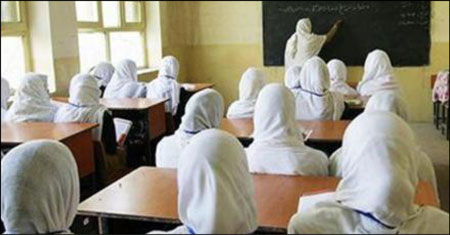The closure of schools for female students in grades 7-12 by the Islamic Emirate has faced reactions at national and international levels. Sunday marks one-year since schools above grade six remain closed for girls’ students in grades 7-12 in Afghanistan.
After coming to power, the Islamic Emirate closed schools for female students beyond grade six.
“Sunday marks one year since girls were banned from attending high school in Afghanistan. A year of lost knowledge and opportunity that they will never get back. Girls belong in school,” said the UN Secretary-General Antonio Guterres.
“The Taliban must let them back in.”
The Islamic Emirate had said earlier that they are working on a mechanism to pave the way for the reopening of girl’s schools. However, the final decision has yet to be announced.
The closure of schools for female students in grades 7-12 by the Islamic Emirate has faced reactions at national and international levels.
UNAMA in a statement on Sunday said that the United Nations reiterates its call for the country’s de facto authorities to take urgent measures to reopen high schools for all.
“This is a tragic, shameful, and entirely avoidable anniversary,” said deputy head of UNAMA, Markus Potzel, as quoted in the statement.
“The ongoing exclusion of girls from high school has no credible justification and has no parallel anywhere in the world. It is profoundly damaging to a generation of girls and to the future of Afghanistan itself,” he said.
According to UNAMA, it is estimated that more than one million girls have been barred from attending high school over the past year.
“The Taliban have failed to deliver on various promises that they will enable their return to the classroom. The ban prevents girls attending grades seven to twelve, primarily impacting girls aged between 12 and 18,” the statement reads.
UNAMA’s statement reads that the denial of education violates the most fundamental rights of girls and women.
“It increases the risk of the marginalization, violence, exploitation and abuse against girls and is part of a broader range of discriminatory policies and practices targeting women and girls since the de facto authorities assumed power in the summer of 2021,” the statement said.—Tolo News










